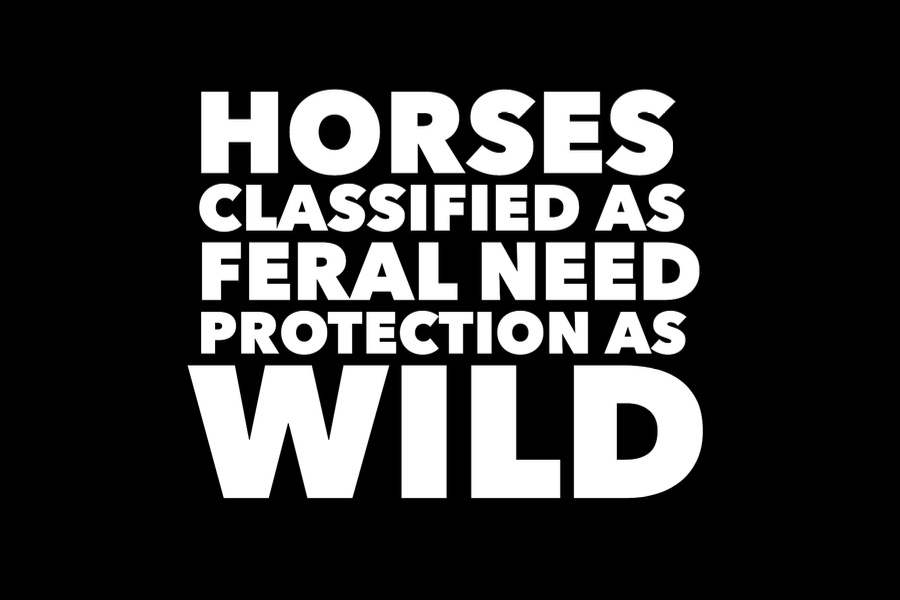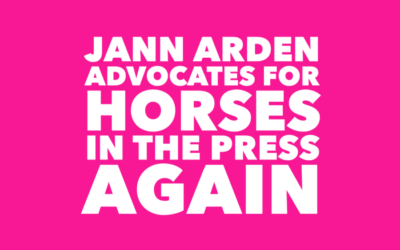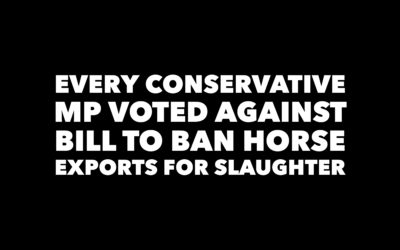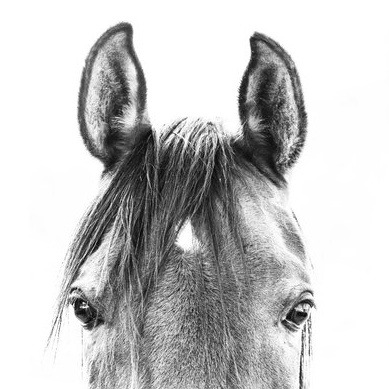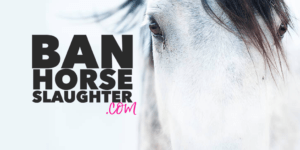SO, IN CANADA — ARE THEY WILD OR FERAL?
You may have noticed since the shooting earlier this month of 17 wild horses in British Columbia, Canada that there’s been an increase in the chatter about whether horses in British Columbia and other parts of Canada who run free are wild or feral.
You may also have noticed that we rarely post on social media, or on this site without a call to action also known as a CTA.
We like to educate and raise awareness, then provide solutions, and courses of action that we are taking to make a difference and that others can join us in doing to help horses and other equines. Whether that be stopping the slaughter of horses within Canada, for human consumption or any purpose, including those imported from the USA for slaughter here (or in Mexico) or stopping the live export of horses from Canada to Japan – or anywhere else — for slaughter.
So what is the Call To Action (CTA) when it comes to helping horses like these 17 who were needlessly shot on Crown land?
That’s a good question. A very good question.
First, let’s start with a recent article in the Globe and Mail. (For our non-Canadian friends The Globe and Mail is a newspaper printed in five cities in western and central Canada and often referred to as the country’s “newspaper of record”. Current readership is estimated to be around 2 million.)
The article is titled: Wild horse slaughter in B.C. saddens, divides local community
And starts out:
The recent slaughter of 17 wild horses in British Columbia’s Interior devastated members of the local community who regard them as an ancient and enchanting part of the landscape. However, the horses are thought of by others as pests, grazing machines that out-compete important species for food and territory.
Even ecologists disagree on whether wild horses deserve more protection.
Cpl. Lepine anticipates charging whoever is responsible for the killings under the Prevention of Cruelty to Animals Act, which carries a maximum punishment of $75,000 in fines and two years in jail.
The free-roaming horses are culturally significant to the Skeetchestn Indian Band, a community with deep roots in horsemanship that has held a rodeo for well over 100 years, according to former band councillor Terry Deneault.
In a statement released Wednesday, the band said that it was “saddened” by the “heinous crime” that occurred
“As our stories tell us, we are connected to all animals that walk, fly and swim, and it is our responsibility to ensure that all life is respected and cared for,” the statement said.
“While these horses did not live on Skeetchestn’s land and the crime occurred outside of our community, we are mourning the unnecessary loss of wildlife that we share this beautiful landscape with.”
So the comments in the article from the former band council member tell us that at least some in the First Nations community most directly “related” to this herd of horses consider the horses to be wild.
Those comments pleased us greatly because as the title of the Globe and Mail article states, the local community is divided and that has been our personal experience when it comes to the wild horses of British Columbia.
We’ve experienced – NOT with this particular Band – some members of other First Nations Bands who when wild horses are being a nuisance the horses are wild, but at other times some of the horses are used for trail rides, then turned out to fend for themselves for the winters – including horses that are branded.
Perhaps even more disheartening, members of more than one band in B.C. routinely round up these wild horses and ship them directly to slaughter in Alberta for human consumption.
We are NOT saying this is the norm.
AND we also want to say that there are groups within many bands and WHOLE bands who are working hard to protect horses and who treat them with respect.
Back to the article…
In B.C., as in the rest of Canada save for a handful of small reserves, free-roaming horses aren’t considered “wild” since the government doesn’t consider them to be native to the land. They are instead branded as “feral,” which disqualifies them from most wildlife protections.
Wayne McCrory, a biologist in B.C. who has studied free-roaming horses in Canada extensively, thinks new legislation is necessary.
“It’s time to ramp up protection, both federal and provincial, in my opinion, to stop this senseless slaughter when some trigger-happy person just decides to take the law into his own hands,” Mr. McCrory said.
Mr. McCrory is involved in research on Chilcotin horses’ DNA that could prove they’re descendants of horses that arrived in Canada in the 1700s. This could help establish that the horses are native to the land and therefore eligible for protection.
So there it is, there is a possible call to action, a CTA. Reach out to your Member of Parliament and your BC MLA and ask them to designate this herd as wild horses.

We do need to say that the article continues with a different point of view, that being that wildland resources would be better served by protecting land from horses, in favour of harder to sustain wildlife species. You can read the full article here.
“It is acknowledged that these horses are of cultural significance to the local Skeetchestn Band.”
Police are asking anyone with information to call the
RCMP Livestock Section at 250-299-7462,
or email cory.lepine@rcmp-grc.gc.ca

THANK YOU to Lana Marie for sharing this NL Radio interview with biologist Wayne McCrory.

T-SHIRTS IN SUPPORT OF HORSE RESCUE FUND
LIMITED TIME OFFER FREE SHIPPING CANADA & USA
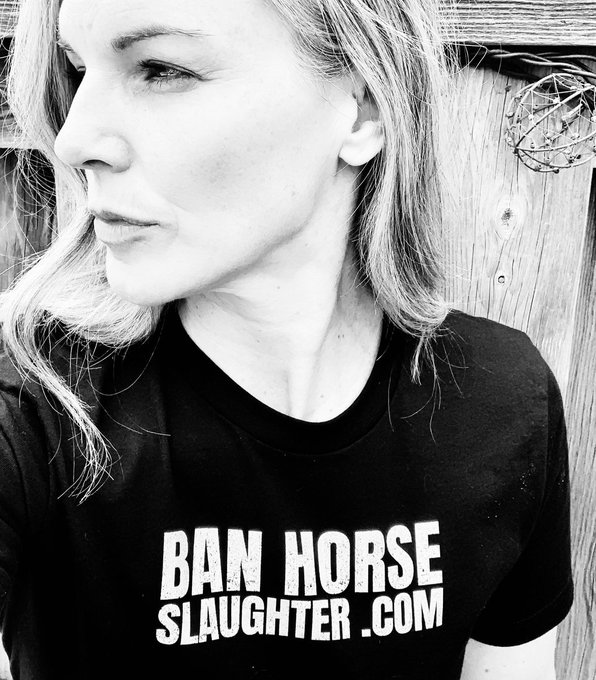
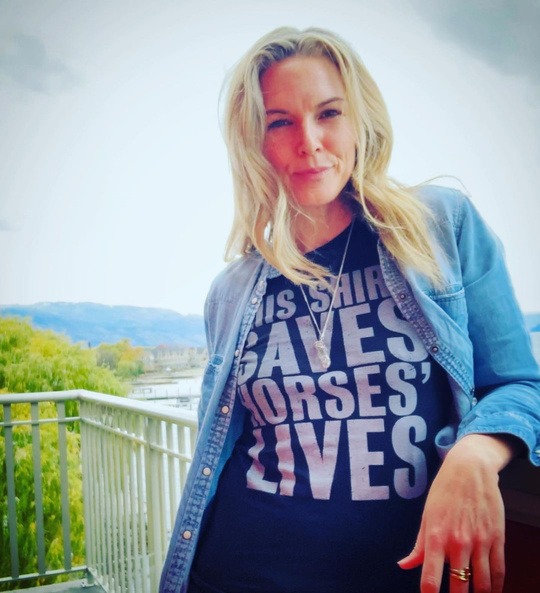
CANADA SLAUGHTERS HORSES FOR HUMAN CONSUMPTION
It may be hard for some to believe that tens of thousands of horses, including pets, are routinely slaughtered in Canada, for human consumption.
Some of the meat is consumed in Canada and much of it is shipped to the European Union and other markets, including Japan.
The barbaric slaughter of horses is currently not legal in the United States, BUT horses, including pets and ex-racehorses, from the United States are shipped to Canada and to Mexico to be slaughtered.
In addition Canada allows for the transportation of live horses to Japan, to be slaughtered for human consumption, and unfortunately the transportation of horses destined for slaughter within Canada, and by air, is far from humane.
BILL C-355 SENATE
HON. PIERRE J. DALPHONDBill C-355 - a bill to ban the export of horses from Canada for the purpose of slaughter by air or to be fattened for slaughter passed through Parliament and is now in the hands of Canada's Senators. Senators are appointed by the Governor...
THANK YOU JANN ARDEN
CANADIAN ICON JANN ARDEN GAINS MORE PRESS Thank you, Jann Arden, for your unwavering commitment to advocating for the protection of horses. Your efforts, particularly in helping to ban the live export of horses for slaughter, have made a tremendous difference. (That...
CONSERVATIVES IN FAVOUR OF HORSE SLAUGHTER
SOCIAL MEDIA WRONGLY BLAMING PM TRUDEAU Recently on social media, we’ve noticed some advocates blaming Prime Minister Trudeau for the ongoing export of horses from Canada to Japan and other markets for the purpose of slaughter. We are thankful that Prime Minister...

